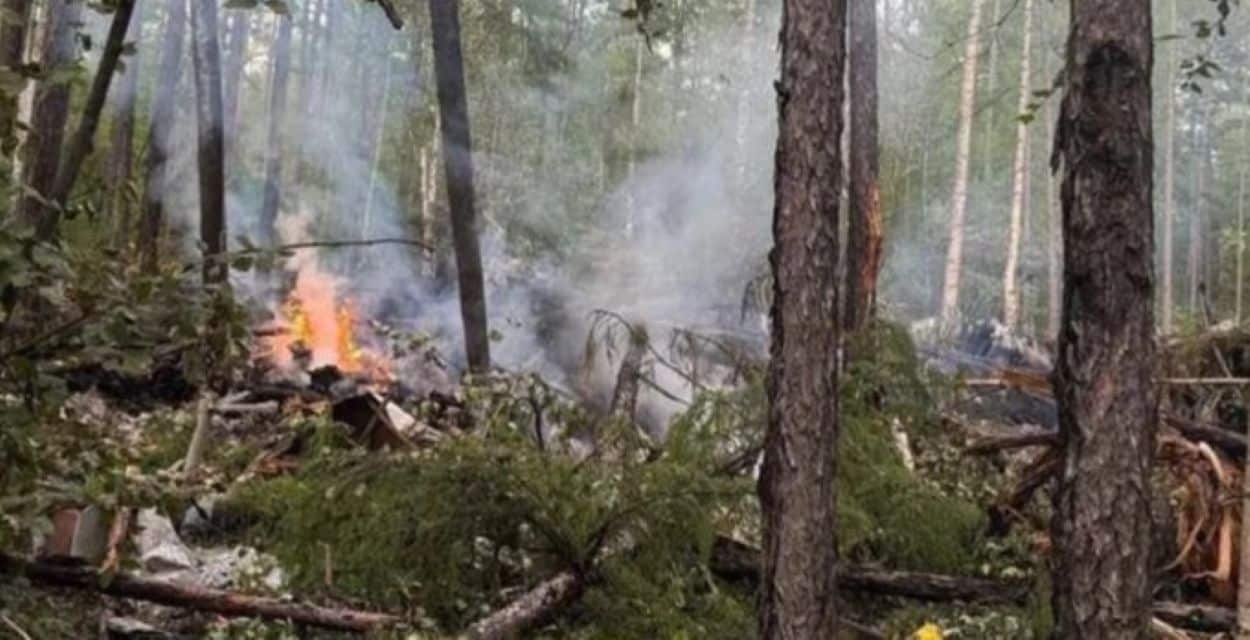On July 24, 2025, an Antonov An-24 passenger plane, carrying 48 people, crashed in Russia’s Amur region, resulting in the deaths of everyone on board. The aircraft, which was built in 1976 and operated by Angara Airlines, failed its second landing attempt near Tynda.
The latest incident highlights the dangers associated with ageing Soviet-era planes, especially in the context of Western sanctions. Below, we provide an overview of the crash, the ongoing investigations, and the global implications, based on statements from Russia’s Far Eastern Transport Prosecutor’s Office and reports from Reuters.
A Reuters report stated that a plane travelling from Blagoveshchensk to Tynda was carrying 42 passengers, including five children, along with a crew of six. The aircraft disappeared from radar following a failed landing attempt. A search helicopter located the burning wreckage 15 kilometres from Tynda, in a forested area that is inaccessible by road. Rescue teams utilised heavy machinery to reach the crash site. Regional Governor Vasily Orlov confirmed that there were no survivors.
The Far Eastern Transport Prosecutor’s Office opened a criminal case, citing violations of air traffic rules causing multiple deaths through negligence. The plane passed a recent safety inspection but had four minor incidents since 2018, per Interfax. Investigators are probing maintenance and operational factors.
WARNING: GRAPHIC CONTENT
A Soviet-era Antonov An-24 plane crashed in Russia's far east killing all 48 people on board, as it attempted to land for the second time after a failed initial approach https://t.co/FcQ5s8F9oi pic.twitter.com/csfOsFD9bJ
— Reuters (@Reuters) July 25, 2025The crash raises concerns about the safety of An-24 aircraft, which are operated in countries such as North Korea, Kazakhstan, and Cuba, according to RussianPlanes. Western sanctions have restricted Russia’s access to spare parts, increasing the risks associated with its aging fleet. This incident may lead to reviews of similar aircraft fleets in other nations.
President Vladimir Putin held a minute’s silence and expressed condolences. Chinese President Xi Jinping sent condolences, noting at least one Chinese citizen among the victims. Moscow formed a commission to manage the aftermath alongside criminal and safety probes.
Russia’s reliance on Soviet-era planes, coupled with the challenges of maintaining them due to sanctions, underscores aviation safety concerns. The crash’s high visibility may accelerate global regulatory scrutiny.






